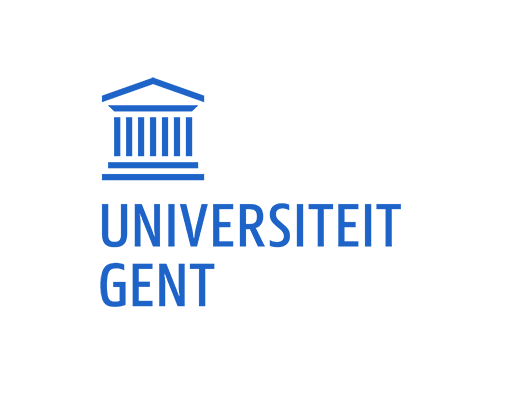Research Project
Transactional investigations of learning in view of sustainability transitions - LESTRA
Running from 2021 to 2026.
Funded by European Research Council (ERC).
Today, severe socio-ecological problems increasingly disturb our customary ways of behaving. As our changing environment emerges as a crisis that disturbs our habits, we are faced with the challenge of finding new ways of inhabiting the world. In this context, ‘learning’ is often seen as vital for transforming our society into a more sustainable direction. The LESTRA project’s key question is: How can learning fruitfully contribute to sustainability transitions (STs) and how can this be facilitated?
This project’s objectives are:
- to develop a new analytical and conceptual framework for investigating the connections between learning processes, the transformation of habits and customs, and (potential) STs;
- to identify the key conditions for learning to contribute to STs;
- to develop a roadmap for future research in diverse settings and contexts.
Achieving a breakthrough requires us to successfully connect the process and outcomes of micro learning processes here and now to the emergence of long-term, macro societal transitions.
Transactional pragmatism, and particularly John Dewey's transactionalism, provides valuable inspiration to investigate learning that takes shape in response to sustainability problems that are increasingly disturbing our habitual ways of acting. It is used to develop a novel analytical and conceptual framework by building on earlier work in environmental and sustainability education research, didactics and sustainability transition studies. We are currently engaged in the theoretical and methodological preparation of the LESTRA research.
The analytical toolbox we are developing, is applied to empirical data collected in three case studies on sustainable food systems, sustainable mobility, and a sustainable way of handling energy. The analyses focus on identifying key patterns of how learning through engagement with sustainability problems results in the consolidation, enrichment or (trans)formation of habits and customs. Thereby, we particularly pay attention to how learning and change processes are facilitated. Through detailed in situ empirical investigations, we analyse on the one hand, learning processes and their outcomes and, on the other hand, change processes in the three cases. Connecting both, we aim to identify and describe potential STs in-the-making and gain understanding in the role of learning therein. Building upon our results, we will develop hypotheses and a research agenda as a roadmap for future research.
The UGent research team consists of Principal Investigator Katrien Van Poeck, post-doctoral researcher Frederik De Roeck, and PhD students Alexander Deveux and Juliane Höhle. Our scientific advisory board consists of professors Jim Garrisson (Virginia Tech, US), Chris Shilling (Kent University, UK), and Leif Östman (Uppsala Univesity, Sweden).
Some further readings and project outputs:
- Papers about opening-up the black box of learning-by-doing in STs and about the transition potential of learning processes were published prior to the start of LESTRA but strongly inspire our work.
- Katrien Van Poeck presented the project's background and our plans for the future in this NEST webinar on 'Learning in Sustainability Transitions'. The presentation can be downloaded here. Juliane Höhle made a graphic recording of the presentation and subsequent discussion:

- This article on agency in sustainability transitions by Frederik De Roeck & Katrien Van Poeck illuminates our transactional perspective on the study of change processes.
- At the European Conference on Educational Research in Glasgow, we organised a symposium on investigating learning in sustainability transitions with, amongst others, presentations on affect in learning and teaching in the context of sustainability transitions (Juliane Höhle) and on facilitating learning in transition practices (Katrien Van Poeck & Leif Östman). We also contributed to another symposium on transformative learning with a presentation about a transactional perspective on transformativity in learning processes.
- At the International Sustainability Transition conference in Utrecht, we presented three LESTRA papers: one on investigating transitions in the making (Katrien Van Poeck & Frederik De Roeck), one on power-in-action and the making of transitions as a political process (Frederik De Roeck & Katrien Van Poeck), and one on a transactional perspective on place-making in transitions (Alexander Deveux).
- At the conference of the NEST Network for Early career researchers in Sustainability Transitions in Dresden, Juliane Höhle presented a paper on the role of emotions in transitions.

Samenvatting in het Nederlands:
Ingrijpende sociaal-ecologische problemen zetten onze gewoonlijke manieren van doen steeds meer onder druk. Deze crisis stelt ons voor de uitdaging om nieuwe gewoonten, nieuwe structuren, culturen en praktijken te ontwikkelen. ‘Leren’ wordt in deze context vaak gezien als essentieel om onze samenleving in een duurzamere richting te veranderen. De belangrijkste vraag van het LESTRA-project is hoe leerprocessen kunnen bijdragen aan duurzaamheidstransities en hoe dit kan worden gefaciliteerd.
De doelstellingen van dit project zijn 1) het ontwikkelen van een nieuw analytisch en conceptueel kader voor het onderzoeken van verbanden tussen leerprocessen, de transformatie van gewoonten en gebruiken en (potentiële) duurzaamheidstransities; 2) het identificeren van de belangrijkste voorwaarden opdat leren zou bijdragen aan duurzaamheidstransities; en 3) het ontwikkelen van een roadmap voor toekomstig onderzoek in diverse contexten. De grootste uitdaging van het projectteam om een doorbraak te realiseren, is om inzicht in het proces en de resultaten van leerprocessen op microniveau hier en nu succesvol te verbinden met het al dan niet ontstaan van macro-maatschappelijke transities op lange termijn.
Pragmatisme – en meer bepaald Dewey’s transactionalisme – biedt waardevolle inspiratie voor het onderzoeken van leerprocessen die vorm krijgen als reactie op duurzaamheidsproblemen die onze gewoontes steeds meer verstoren. Het wordt gebruikt voor het ontwikkelen van een nieuw analytisch en conceptueel kader dat vervolgens wordt toegepast in drie empirische case studies over voedselsystemen, mobiliteit en energie.
Transitions and Future Studies, Sustainability Education, SEDwise, WOG




